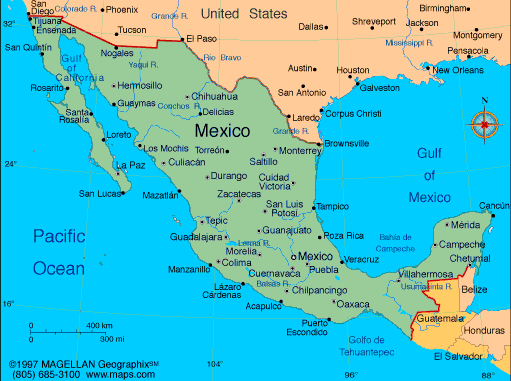Culture is the way of life of a given people. It entails how people behave and perceive different life issues. It includes aspects like religion, ethnicity, customs, language, beliefs, and food among other aspects that define a people. Culture varies from one place to another depending on the circumstances surrounding a place, for instance, climate and environment and how people perceive things.
Politics on the other hand entails the process by which a group of individuals come together and make collective decisions. It could also be seen as a way through which state or governmental affairs are run. This piece of work will give an in depth discussion of the culture and politics of Mexico.
Mexico has an interesting culture. Just like any other aspect, culture in Mexico has undergone a lot of changes especially as from the 20th century. People’s lifestyle, particularly those in the cities, has become similar to that experienced in Europe and the United States of America. In regard to language, Spanish is widely used in Mexico. However, there are a total of 62 indigenous languages that have been recognized by the Mexico government as national languages.
Another cultural aspect in Mexico is art. Mexico is a country that is known for its folk art. The art has its origin from indigenous and Spanish crafts. There is a lot of pottery and garments embroidery. Pre – Columbian architecture is widely spread in the country. In Mexico, religion is left open and there is no one religion that is made official. However, Catholicism has the largest membership, approximately 83%.
Protestantism has 9% followers of the total population including Jehovah’s Witness and Seventh-day Adventist. Buddhism, Islam and Judaism are also proclaimed in Mexico although to a small extent. The ethnic groups include the Mestizos and about 52 indigenous ethnic groups (Joseph and Henderson 47).
In regard to politics, Mexico government is a federal republic, led by President Felipe Calderón who was elected in the year 2006. The government is founded on a congressional political system and thus the President has got a lot of powers and heads the state, the government as well as well as a multi-party structure.
The federal government is deemed to represent the United Mexican States. It is divided into three branches; the executive, the legislature, and the judiciary. The government follows the political constitution of the United Mexican States, of 1817 (Wasserman 99).
There are about seven political parties in Mexico the main ones being the Institutional Revolutionary Party, the National Action Party, and the Party of the Democratic Revolution. All political parties are required to promote democracy in the country and to act as a medium through which the citizens can participate in public office affairs.
Every individual who has reached 18years has a right to vote. In Mexico, there are usually different levels of elections, that is, the presidential elections, the congressional elections, and the State elections. There have been considerable changes in the Mexican politics all aimed at making the country better. However, there exist some political disputes due to varying views by different agencies.
This has affected the country’s economy. For this reason, there ought to be a positive move taken by the President, the politicians and the political parties irrespective of the compromise that each unit ought to make for the best of the majority (Starr and Council on Foreign Relations 25).
A map showing Mexico Culture and Politics (including the Government, Economy and Population)

Works Cited
Joseph, Michael Gilbert, and Henderson Timothy. The Mexico Reader: History, Culture, Politics. Durham, NC: Duke University Press, 2002. Print.
Starr, Pamela, and Council on Foreign Relations. Challenges for a Post election Mexico: Issues for U.S. Policy. New York: Council on Foreign Relations, 2006. Print.
Wasserman, Mark. Everyday Life and Politics in Nineteenth Century Mexico: Men, Women, and War. Albuquerque, New Mexico: UNM Press, 2000. Print.